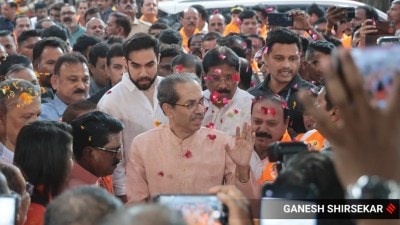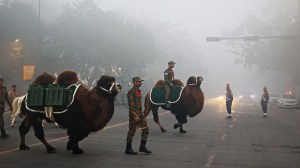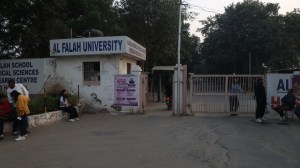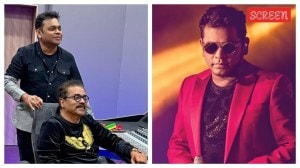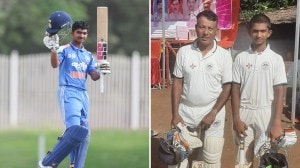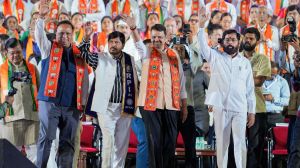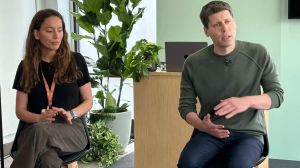145;Experience has changed me146;
Kerala Chief Minister, A K Antony, 62, is in the eye of a storm. Across the state there have been violent protests over the government8217;...

Kerala Chief Minister, A K Antony, 62, is in the eye of a storm. Across the state there have been violent protests over the government8217;s handling of a tribal agitation at Muthanga in Wynad. But the real cause of the anger against Antony, is not so much the tribal issue as his attempts to liberalise the economy of a state, which for decades has looked down upon private enterprise and considered foreign investment a dirty word. The Global Investors Meet GIM at Kochi this January was a major step in Antony8217;s attempt to turnaround Kerala8217;s out-dated economy. In an interview with Coomi Kapoor in Thiruvananthapuram, Antony talked about his effort to ensure that the winds of change blow through his state. Excerpts:
Is Kerala finally changing?
In the last two years there has been a change in attitude. Keralites are moving from a society with a closed mind to one with an open mind. People are fed up with violence. Keralites who have gone abroad have changed their approach after seeing what is happening in the Gulf and USA. People are tired of slogans and agitation. They want improvement in the quality of life, more job opportunities, better communication systems, better availability of goods. They want change and economic development along with achievements in certain areas.
Kerala has the highest standards in the country in the social sector: including literacy, health and law and order8230;
But even here standards change with time. We may be a literate state but the quality of education has to change, we must be able to compete with anywhere in the world. There was a time when the feeling was that only government should look after education. Not any more. We have opened more than 40 new private engineering colleges in the last 21 months,42 nursing colleges, and four medical colleges.
Kerala has lagged behind in IT compared to its neighbours.
Actually we were the first to start IT programmes back in the seventies, when we also opened a technopark. But somewhere along the way we lost the initiative. A scare was spread that computers would create large-scale unemployment. A protest movement was launched to destroy all computers. We are now finally back on track.
Your government has taken a U-turn in its economic plans.
We are for reform, but with a human face. The socialist content is still there but mere slogans will not get us anywhere. Unless we have free productive forces, Kerala will remain where it is. Kerala has the highest number of PSUs compared to our population. Now we have opened up industry to the private sector.
What is the difference between your style of liberalisation and the Vajpayee government8217;s?
There are some similarities and some differences. We think only in terms of reviving our sick PSUs, we can think of selling them only as a last resort. But from now on we will encourage the private sector whether investments are from NRI Keralites or MNCs, so long as it is within a transparent policy framework.
You are handicapped by an obstructionist LDF Opposition.
We are trying to educate them. We are asking them that your counterparts in West Bengal have changed, why are you opposing economic change in Kerala? If the West Bengal government, with the consent of the CPM Polit Bureau can invite MNCs like Coke and Pepsi and allow private distribution of power, why should they oppose the same in Kerala? My feeling is that a debate is going on in their own party. The power of public opinion will make them come around. Nobody can keep winds of change from blowing. China is changing, Vietnam is changing, we are hopeful about them.
What about opposition from your own party, which is deeply divided?
The Congress in the past was like a United Front. Things are much better. In a democratic process you have to reason with them and make accommodation.
You, have also changed. You displayed uncharacteristic firmness in handling the government employees8217; strike last year and were accused of being against the working classes.
Experience has changed me. I am concerned only about results. We have to do something for the general populace of the state. During the period of the strike I saw even double graduates queuing up to get employment as sweepers on daily wages of Rs 80. There was no money in the treasury, agricultural prices were low. At least government employees were getting something.
The Global Investors Meet GIM at Kochi was very successful, which aspect of it enthused you the most?
The PM8217;s presence and his announcement of monetary assistance gave a real boost. He was very helpful. Also, a lot of proposals for projects in the IT, tourism and infrastructure sectors have been put forward. When we took over there seemed no hope for Kerala, now there is.
But, how will you get around the resistance of the Opposition. So far the planned meeting with the opposition leaders in the wake of GIM to clear proposals has not materialised.
In a democracy we have to attempt to accommodate their sentiments as well. It took 15 years for them to realise the importance of computers. This time round the period of realisation will be shorter. They postponed the meeting, but they will come around. We must not abandon the principle of consensus.
You seem quite comfortable with the Vajpayee government.
We have excellent relations. I believe in healthy Centre-state relations. Whenever we have differences in policy or regarding Kerala8217;s interests we express them openly. At the political level I see the BJP as the main national rival to the Congress. By and large the situation is now favourable to the Congress, contrary to what people said after the Gujarat election. I totally oppose the use of saffron to identify the BJP. It is not the colour of the BJP but of Indian culture.
Now you are caught in a storm over protests against your handling of the tribal agitation.
The tribal problem is not confined to Kerala. My own feeling is that some changes in the Forest Conservation Act are very necessary. We hope that within two years half the tribal population in the state will get one acre of land. But the difficulty in handing over semi-forest land is that we have to first get the clearance of the Central government and after the latest Supreme Court judgement even the Centre does not have the power.Some tribals encroached forest land at Wynad. The Central government sent us repeated reminders to evict them. Then the tribals took hostage a police constable and a forest officer. The constable was so badly beaten up that he later died. To save the life of a policeman we had no option but to open fire. One tribal was killed. But they have created an atmosphere as if a massacre has taken place. They sent a complaint to Amnesty International that 20 tribals have been massacred.
Who are 8216;they8217;?
8216;They8217; are tribals, NGOs and opposition parties, all who are opposed to us. They called Kerala 8216;8216;India8217;s Somalia,8217;8217; and Antony is compared to Narendra Modi. I thought this has now become a world issue. They want a judicial inquiry which will drag on for three years and by the time we are exonerated, we would have been permanently branded. I want an impartial body like the NHRC to investigate the matter speedily and decide soon. All those tribals who have been reported missing or dead have been gradually returning back to their homes. I want the truth to be known now, for we have nothing to hide.
- 01
- 02
- 03
- 04
- 05


